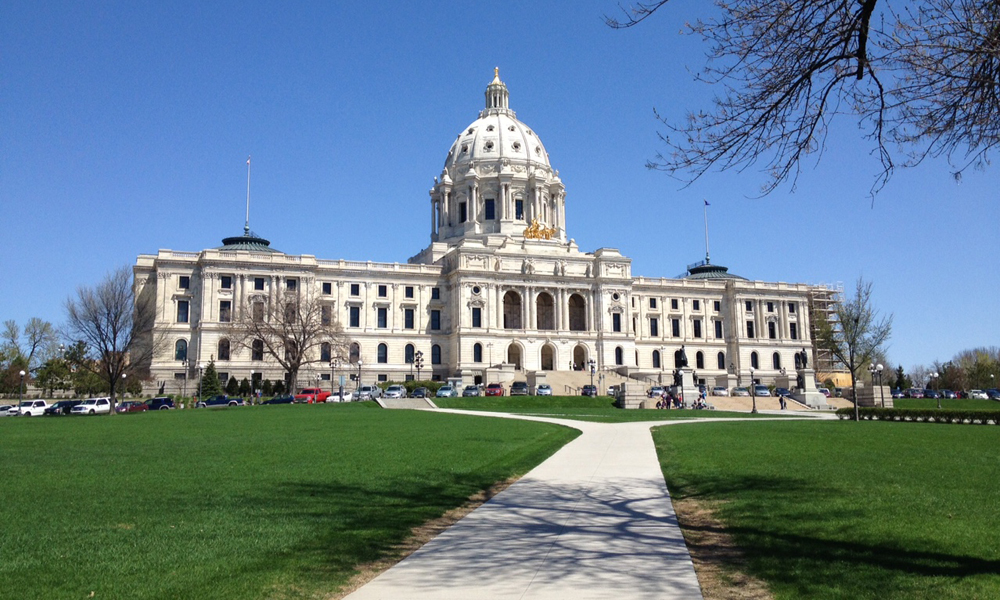Policy Update for the Bioeconomy Coalition of Minnesota
April 10, 2020 | Brendan Jordan | Policy

The current COVID-19 crisis is impacting all aspects of life, and that includes the Bioeconomy Coalition’s important priorities in the Minnesota Legislature. The focus of legislators is rightly on the immediate crisis and the toll it’s taking on our families, friends, colleagues, and people across the nation and globe. However, I do want to take this moment to update you on the current outlook for the bioeconomy in the 2020 legislative session.
We have been working hard to fully fund the Bioincentive Program. Our strategy is multi-pronged and has included extensive outreach to the Walz administration and the legislature. We hoped to have a supplemental budget request from the governor that included full funding for the Bioincentive program, enough to pay all expected claims for the current fiscal year, and re-pay claims from Q2 that were not fully paid due to lack of funds. I fully expected to see increased funding in the budget request. In terms of legislative strategy, Senator Jason Rarick (R) and Representative Mike Sundin (D) are motivated advocates and are working hard to build support in their respective legislative bodies. SF 3862/HF 4024 has been moving through the process. In short, we were very well positioned for success this year. I had been feeling quite optimistic.
Unfortunately, nothing is as it should be right now. The word I keep hearing from veterans of the Minnesota Legislature is “unprecedented.” The response to the COVID-19 crisis is all consuming. Governor Tim Walz and legislative leaders have indicated that the only things we should expect from the legislature this year are a bonding bill, bare-bones supplemental budget, and legislation supporting the response to COVID-19. Everyone acknowledges that the economic repercussions from COVID-19 are sure to move us from what we thought was going to be a surplus to a large budget deficit. Thus, Governor Walz and legislative leaders have agreed to leave as much money as possible on the bottom line.
Our situation is not impossible, but some recalibration of expectations is in order. At this point, the legislature is in recess until at least May 4, and most legislators and staff are at home. The legislature is on-call to return for short bursts of legislative work. All committee hearings and scheduled meetings are cancelled. The normal ways we do business and communicate with legislators have been disrupted, and there just isn’t a lot of bandwidth.
We are not done advocating for the bioeconomy in Minnesota. This crisis will not last forever, and we still need to continue our important work to make Minnesota a bioeconomy leader. The biofuels industry and parts of the forest products industry are experiencing serious impacts from the COVID crisis, and the last thing they need right now is to be denied payments they expect from the Bioincentive program.
Legislative leaders have indicated that there is some opening for new spending if it has bipartisan support. That certainly describes our work together.
We will continue to work with our authors and advocate for the Bioincentive and stay alert for any opportunities. If there is any opening, we will be ready. But, we should all be realistic that as this crisis is impacting all aspects of life, so too is it impacting our legislative prospects in 2020.
Thank you for your support of the bioeconomy in Minnesota and all the economic and environmental benefits it does and can bring to the state.
The Bioeconomy Coalition is facilitated by the the Great Plains Institute (GPI), a nonpartisan, nonprofit organization with a mission to transform the energy system to benefit the economy and environment. GPI combines a unique consensus-building approach, expert knowledge, research and analysis, and local action to find and implement lasting solutions.
You can learn how GPI has taken proactive steps on COVID-19 as an organization here and access the latest information on COVID-19 from the Centers for Disease Control and Prevention, the National Institutes of Health, and your local health department.
